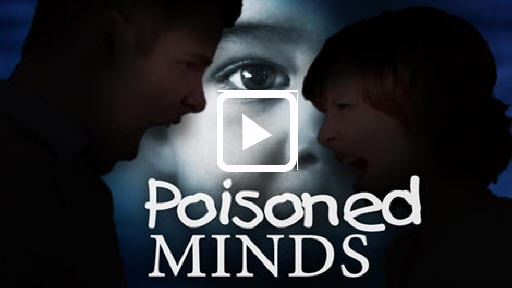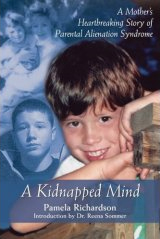Notification of Judgement - Kilgore v. Boyd (U.S.)
An important test in that a US court found that Parental Alienation Syndrome now met the Frye test for scientific acceptability in court.
From Dr. Richard Gardner
I am pleased to report that on Wednesday, November 22, 2000, a family court in Tampa, Florida, ruled that
the Parental Alienation Syndrome had gained enough acceptance in the scientific community to satisfy Frye
Test criteria for admissibility. Richard Warshak and I both testified at the Frye hearing, which lasted two
days. H Michael Bone was also involved in the case and provided valuable assistance. I believe that my
website list (www.rgardner.com/refs) -- which includes approximately 100 articles on the Parental Alienation
Syndrome in peer-review journals and 38 courts of law that have recognized Parental Alienation Syndrome --
played an important role in the court's decision. The citation for use in future cases: Kilgore v. Boyd,
13th Circuit Court, Hillsborough County, Fl., Case No, 94-7573, November 22, 2000. I believe that this is
the first case in which a court has so ruled. There is good reason to believe that this case will serve as a
precedent. I am grateful to those who have sent me scientific literature references and legal citations.
Please keep them flowing; the list can never be too long.
- Richard Gardner
Extract from the judgement
from; Excerpt taken from Kilgore v. Boyd, Circuit Court of the 13th Judicial Circuit of the State of Florida,
Hillsborough County, Family Law Division. Case no. 94-7573, Div. D)
THE COURT: ... If I do have to apply a Frye test he has passed the Frye test. And I find that parental
alienation syndrome has passed the Frye test in my courtroom, which is a Circuit Court Courtroom in the
Family Law division, based on the evidence and the argument before me. The evidence and the argument before
me, the testimony and the CV of Dr. Gardner, together with an excerpt of his writings. There was also
proffered an article from the Florida Bar Journal which, quite frankly, I read when it came out and at the
time I read it I placed some credibility in it. I'm also impressed by the fact that Dr. Gardner is cited in
the footnote in at least one of the cases, I believe it's Schultz vs. Schultz hang on a second. Off the
record a second. (There was a discussion off the record.)
THE COURT: It has also been proffered that the state of Texas gives it credence in its book of evidence and
as Dr. Warshak testified the-- I cannot cite exactly the group, but it's some national psychologist
organization, cites it approvingly and cites Dr. Gardner's writings approvingly in its child custody
evaluation criteria.
Weighed against that was the testimony of Dr. Carter, who is a psychologist who seems to have no national
criteria and whose opinion was bolstered by Dr. Whyte. I know Dr. Whyte, I have a very high opinion of Dr.
Whyte's capabilities and quite frankly, based on their testimony I could see only that there only seems to
be some sort of disciplinary turf battle between psychologists and psychiatrists, and just because
psychologists don't approve of the parental alienation syndrome and because they cite that it's not in the
DSM-IV doesn't mean that his test is not widely accepted in the relevant scientific community of child
psychiatrists. Based on the evidence before me I have every reason to believe that it does.
FurtherRead More ..Dr. Gardner's argument that it's not in the DSM-IV his argument is it's not in there yet
because the DSM-IV hasn't been updated since 1994. Both of the examples cited, that is the fact that AIDS
was widely discussed and treated and diagnosed before it was included in the DSM-IV, as was Tourette's
syndrome, is persuasive.
The study by Dr. Gardner has been around since 1985, which is fifteen years. He testified that he's had some successful results, he's run some studies. His testimony was bolstered by Dr. Warshak, who is a psychologist and is also a full professor at a fairly prestigious university.
So based on the totality or that I find that even though I might not have to have the test meet the Frye criteria that it does meet the Frye criteria, and therefore I'm denying the former wife's motion to strike the testimony and evidence in the reference to parental alienation syndrome.
About the Frye Test
In the early 1920s, a man named James Frye was found guilty of murder on the basis of a new lie-detector test based on the theory that when a person lied, the systolic blood pressure would be elevated. In 1923, the Washington D.C. appeals court ruled that before a new scientific principle or discovery could be used as evidence in a court of law, it "must be sufficiently established to have gained general acceptance in the particular field in which it belongs." The court ruled that the blood-pressure test had not gained such acceptance, and so Frye`s conviction was reversed. On the basis of the two-day Frye hearing in Tampa, the court ruled (primarily on the basis of the 100 peer-reviewed articles on the Parental Alienation Syndrome and 38 court rulings in which the Parental Alienation Syndrome had been accepted by the judge) that the Parental Alienation Syndrome had gained general acceptance in the fields of psychology and psychiatry and can thereby be used as evidence in courts of law. Courts are free to accept evidence that has not passed the Frye test--and this has certainly happened with the Parental Alienation Syndrome--but such acceptance is more easily appealable. Now such cases will be more difficult to appeal.







